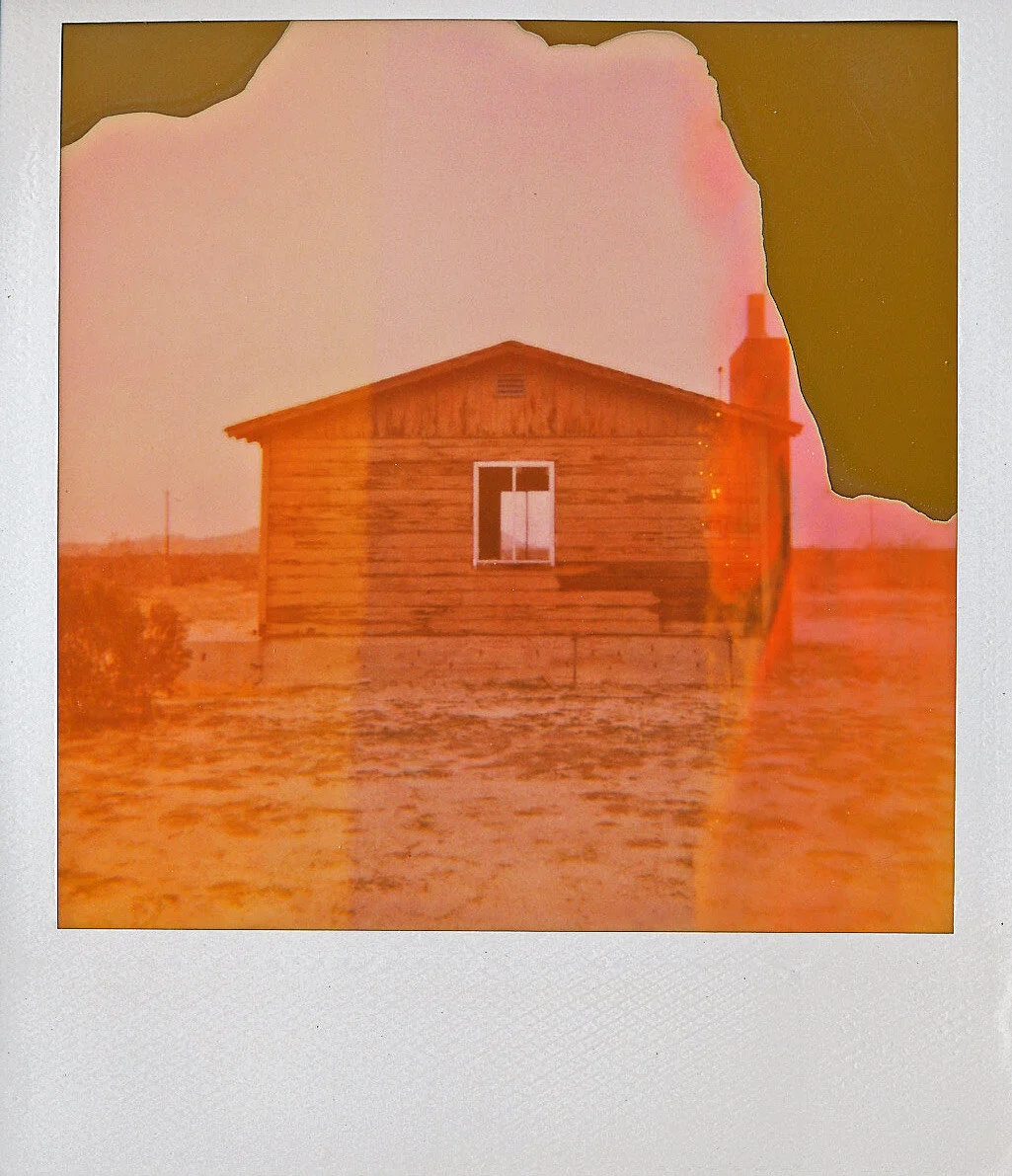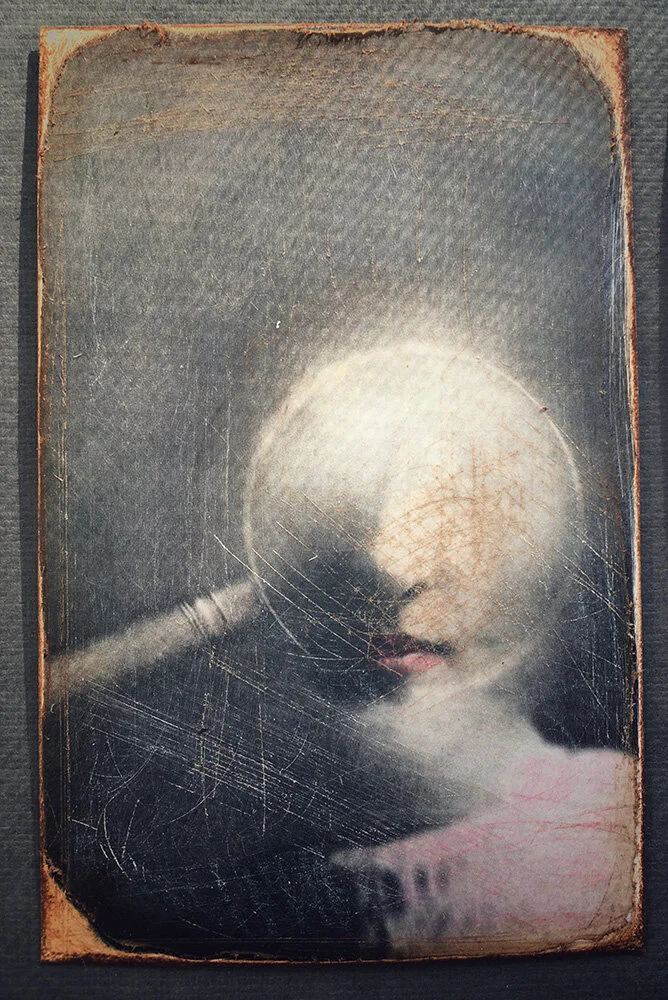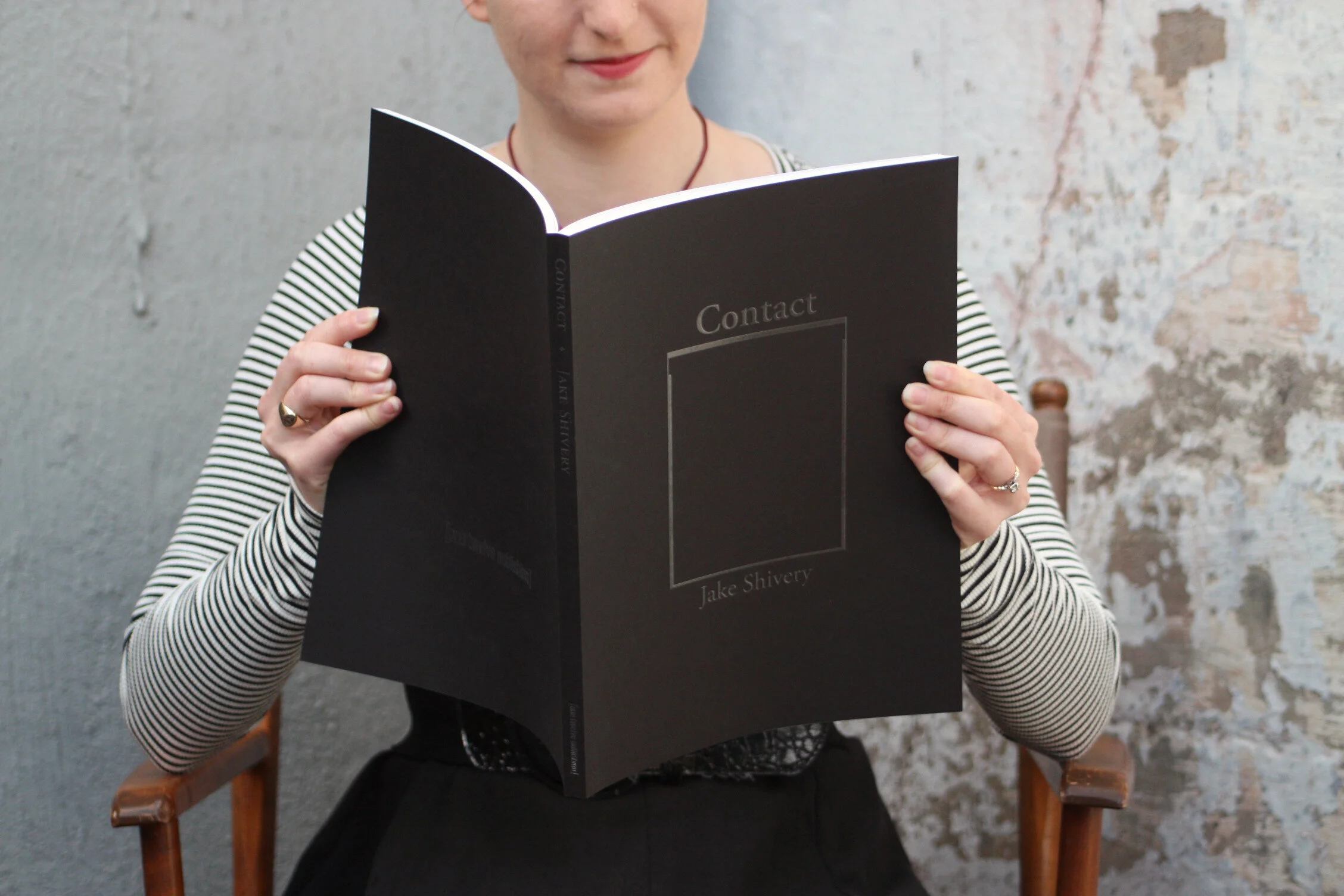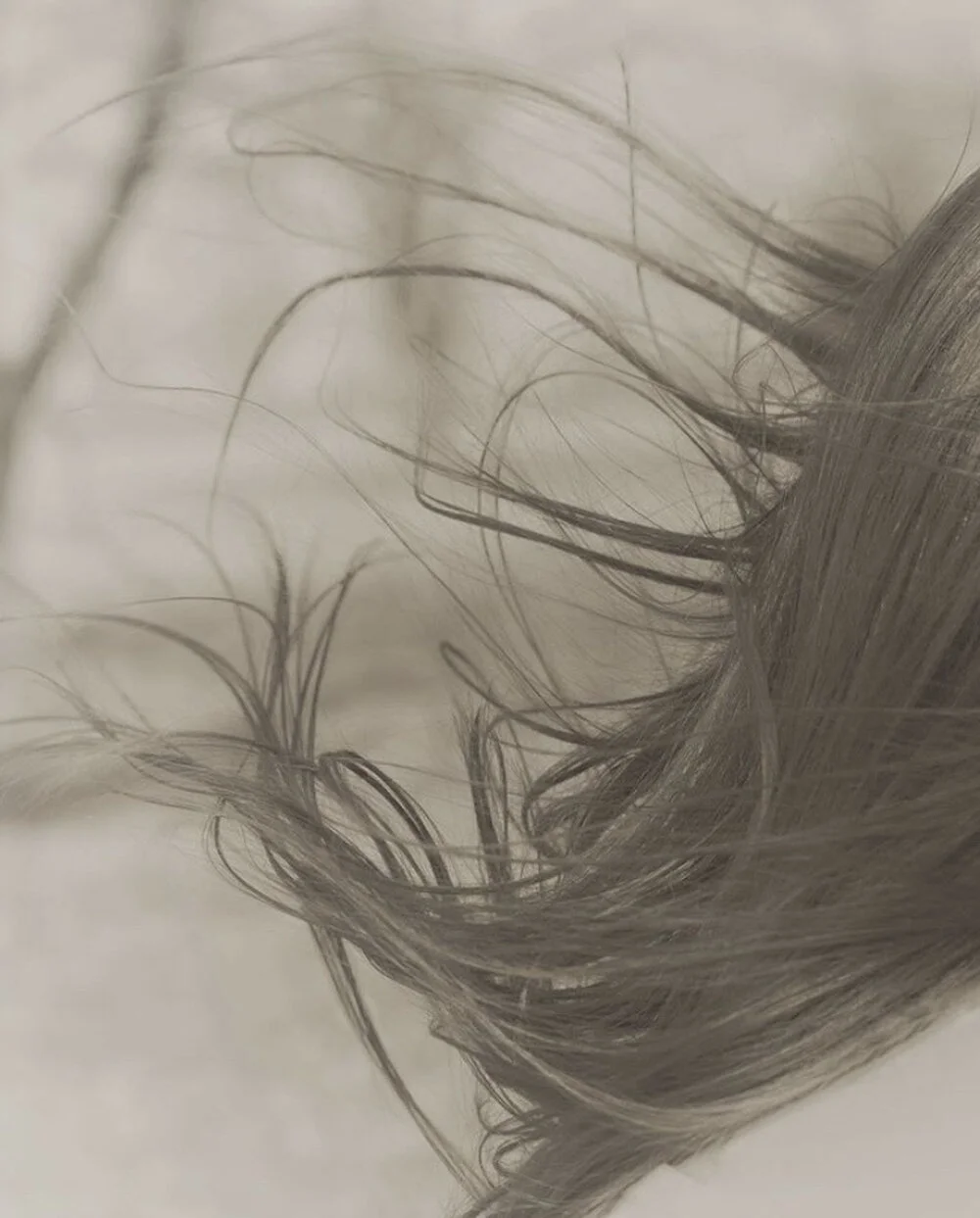Our editor Diana Nicholette Jeon writes about Kaylee Clark’s handmade “film, “Divergence.”, and how she felt when seeing it.
Read MoreOur editor Diana Nicholette Jeon writes about Justen Ahren’s image “Feed Lot", Lubbock, TX” and how she felt upon first seeing it.
Read MoreOur editor Diana Nicholette Jeon writes about Maureen Bond’s image “Untitled (House)” and how she felt when seeing it.
Read MoreDiana Nicholette Jeon writes about Francis Baker’s image “Barrier” and how she felt when seeing it.
Read MorePrecisely Now by Peggy Washburn
In my first-grade class, I was taught to write with my right hand. I was more comfortable with my left. We had big sheets of paper and were asked to make lines, then circles using our whole arm. I made hundreds, maybe thousands of circles. I pasted these circles, along with found objects into books. It helped me to record my thoughts and make visual order. It also allowed me to express the familiar disorder of a child’s mind. I later added drawings and eventually my photographs.
Read MoreWelcome to no. 26 in our series Poignant Pics where we've asked photo curators, educators, collectors, and makers to share a brief essay on a photo that has significantly changed the way they think or look at the world.
In this issue, our editor Diana Nicholette Jeon writes about two of Dawn Surratt’s images and how she felt when seeing them.
Read MoreFictitious Family by Norma Córdova
My father was diagnosed with early-onset Alzheimers in 1997, and after a long struggle with dementia, passed away in 2007. The intervening ten years were the most difficult years of my life. It profoundly changed the dynamics of my family, and my own personal trajectory, especially as Alzheimers can carry a stigma in Mexican communities.
Somewhere in those ten years, I picked up a camera and began to develop my craft.
Read MoreWelcome to no. 25 in our series Poignant Pics where we've asked photo curators, educators, collectors, and makers to share a brief essay on a photo that has significantly changed the way they think or look at the world.
In this issue, our editor Diana Nicholette Jeon writes about Chris Byrnes’ image, Broken Landscape, and how she felt when seeing it.
Read MoreJake Shivery, Contact by George Slade
The camera salesman Mr. J. Shivery reveals his meditations on vision and community in this eloquent commingling of first-person text and second-person imagery. Contact, the book’s title, assumes both literal and metaphoric implications. Literal, in the sense of contact sheets: these pages reproduce 8x10 inch negatives, the photographer’s choice medium, at a 1:1 ratio. Metaphoric, in the extraordinary way in which his vision contacts spiritual essence that speaks of both individual and communal truths. Qualities of place and relationship flow between people, photographer, and final image.
Read MoreTo Which We Return by Kristoffer Johnson
To Which We Return focuses on the impermanence and fragility of the human body and the physiological problems that are inherent with existence.
Read MoreWelcome to no. 24 in our series Poignant Pics where we've asked photo curators, educators, collectors, and makers to share a brief essay on a photo that has significantly changed the way they think or look at the world.
In this issue, our editor Diana Nicholette Jeon writes about two of Anna Karaulova’s images and how she felt when seeing them.
Read MoreSense of Self by Jane Szabo
Graciously infused with movement, Sense of Self is a series of expressive, conceptual self-portraits. Using movement and light to create a blurred, diffuse quality, I confront my own vulnerability, as well as my attempts to create a sense of order from the natural chaos of personal environment and emotion.
Read MoreWelcome to no. 23 in our series Poignant Pics where we've asked photo curators, educators, collectors, and makers to share a brief essay on a photo that has significantly changed the way they think or look at the world.
In this issue, our editor Diana Nicholette Jeon writes about two of Anne Silver’s images and how she felt when seeing them.
Read MoreReimagined Landscapes by Joseph Wright
This work was borne out of threads of inquiry and experimentation, and an almost obsessive need to continue to remain creative and somehow escape the initial pandemic lockdown in March 2020. Attempting to stay connected to the environments I was now denied access to. But, still wanting to work within the loose confines of photographic processes, exploring their simplest forms – subject, (sun)light, and a receptive material. All whilst never venturing further than 10-feet from my back door.
Read MoreSmall Animal by Amanda Tinker
In this series of photographs, I arrange details from nature collected from my family garden, children’s books, and vintage identification guides, behind large glass panels. Each photograph looks at the natural world as if it were held just for our observation, suspended far from any recognizable landscape. Nature’s small beauties, such as birds, butterflies, twigs, and petals become objects of contemplation, organized into layered configurations. As arrangements these are illusions. I am inspired by the “impossible bouquet” of Dutch still life, where flowers that would never bloom together in nature are painted together in lavish arrays.
Read MoreWelcome to no. 22 in our series Poignant Pics where we've asked photo curators, educators, collectors, and makers to share a brief essay on a photo that has significantly changed the way they think or look at the world.
In this issue, Diana Nicholette Jeon, an editor, talks about one of Janet Matthews’ untitled images, and how she felt when seeing it.
Read MoreWelcome to no. 21 in our series Poignant Pics where we've asked photo curators, educators, collectors, and makers to share a brief essay on a photo that has significantly changed the way they think or look at the world.
In this issue, Diana Nicholette Jeon, an editor, talks about Shane Balkowittsch’s image, girl with virus, and how she felt when seeing it.
Read MoreNow is Always by Vaune Trachtman
This work began one summer in the early 1930s when my father shot a few rolls of film near his father's drugstore in Philadelphia. Nearly 90 years later I was given the negatives by a relative. Working from the original negatives, I've combined the people from my father's neighborhood with my own cell phone images, many of which were shot from windows and moving vehicles.
Read MoreI find Eric to be articulate, funny, intelligent, kind, and passionate about his work. It was the combination of those qualities and the timely importance of his FAKE NEWS project that caused me to ask to interview him about that work for this publication. After some reflection, I felt that this project needed a video interview rather than print…that it was really important to hear Eric’s words directly, rather than my interpretation of them.
Read More



















